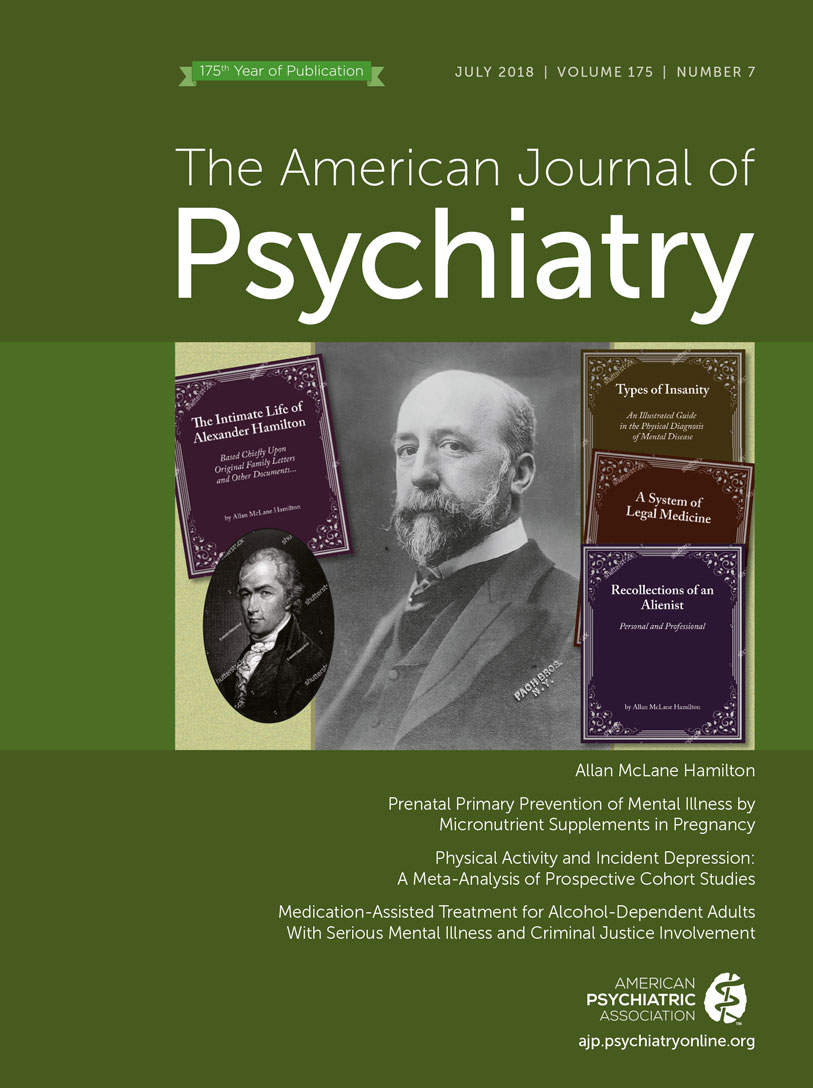Would Addressing Alcohol Consumption Further Account for Variance in Methylation?
To the Editor: In their article published in the June 2018 issue of the Journal, Marzi and colleagues (1) made an important set of observations with respect to the association of victimization during childhood and adolescence with whole blood DNA methylation. In addition, they have helped underscore the likely importance of smoking as a variable that accounts for associations with several of the limited set of loci showing an association with victimization and trauma. We noted in 2012 and 2014 that both cigarettes and alcohol, which are commonly consumed as a consequence of trauma, have a prominent effect on genome-wide DNA methylation (2, 3). In 2016, we followed up on these findings and noted particularly prominent dose-dependent effects of cigarette and alcohol consumption at FKBP5 and NR3C1, which are two of the key genes studied by Marzi and colleagues (3, 4). In addition, in unpublished findings in our 2016 study of subjects who were also informative for posttraumatic stress disorder (PTSD) status, which used the same array as the present study, consistent with the findings of Marzi, we did not find a significant relationship of PTSD to methylation at any of the 75 CpG probes mapping to those two genes after controlling for alcohol and cigarette consumption (results available from the authors). Hence, there is additional corroborating evidence for the observations provided by Marzi et al. (1). Furthermore, from a scientific viewpoint, it is reasonable to wonder whether controlling for both alcohol and cigarette consumption can fully explain associations of trauma and victimization with variance in the candidate genes explored by Marzi et al., as well as in patterns of genome-wide DNA methylation.
Regardless of the answer to that question, there are two clear messages arising from a convergence of this report with prior genome-wide studies and work on health risks. First, both alcohol and cigarette consumption have substantial and reliable effects on genome-wide methylation, and both are tightly associated with increased risk of death and disability. Second, adverse life events increase the rate of substance use and perhaps influence other consequential health behaviors. Because humans cannot be randomly assigned to trauma and victimization, what is desperately needed are well-designed trials that test whether prevention of substance use or enhancement of other healthy behavior can decrease the severity of symptoms among those exposed to potentially life-altering early contextual stressors, trauma, or victimization. Most importantly, the Marzi work lends further support to the possibility that smoking prevention among teenagers could substantially reduce the epigenetic signature of early trauma and victimization as well as their associations with long-term adverse health outcomes.
1 : Analysis of DNA methylation in young people: limited evidence for an association between victimization stress and epigenetic variation in blood. Am J Psychiatry 2018; 175:517–529Link, Google Scholar
2 : Coordinated changes in AHRR methylation in lymphoblasts and pulmonary macrophages from smokers. Am J Med Genet B Neuropsychiatr Genet 2012; 159B:141–151Crossref, Medline, Google Scholar
3 : A pilot examination of the genome-wide DNA methylation signatures of subjects entering and exiting short-term alcohol dependence treatment programs. Epigenetics 2014; 9:1212–1219Crossref, Medline, Google Scholar
4 : Alcohol and tobacco consumption alter hypothalamic pituitary adrenal axis DNA methylation. Psychoneuroendocrinology 2016; 66:176–184Crossref, Medline, Google Scholar



